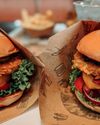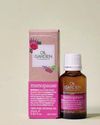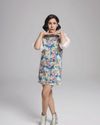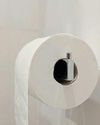
At its very core, intuitive eating (IE) is the simple philosophy of honouring ourselves by trusting our minds and bodies and eating only when we are hungry.
It’s been called the anti-diet because no foods are taboo, there’s no kilojoule counting, no meal plans to religiously adhere to and no portion control. It is a backlash to diet culture and it’s called intuitive eating.
Babies and small children instinctively know how to eat intuitively. They’ll eat enough so their hunger is appeased, and no more. As they grow and develop into little humans, they are bombarded by media images, lured by sugary treats in bright wrapping paper and later held prisoner to a diet ethos that feeds into often unrealistic body images, all of which impact on body positivity and body acceptance.
What does intuitive eating really mean?
IE is an evidence-based health approach created in 1995 by two dietitians, Elyse Resch and Evelyn Tribole. They have developed 10 core principles to guide people through what IE is in a nutshell and have penned a book that many consider the holy grail of IE. It’s now in its fourth incarnation.
Dietitian Nina Mills from Feel Good Eating says IE is a way of tuning into the biology of hunger cues, because there are so many emotions associated with food. “I like to think of intuitive eating as a way of coming home to our bodies,” she explains.
IE is a revolutionary way of thinking that’s liberating, comforting and thought-provoking. It’s food without judgement. It’s letting go of “good” or “bad” food labels and, in a broader sense, it’s giving yourself unconditional permission to nibble, taste, snack on or scoff whatever you fancy.
This story is from the WellBeing 199 edition of WellBeing.
Start your 7-day Magzter GOLD free trial to access thousands of curated premium stories, and 9,000+ magazines and newspapers.
Already a subscriber ? Sign In
This story is from the WellBeing 199 edition of WellBeing.
Start your 7-day Magzter GOLD free trial to access thousands of curated premium stories, and 9,000+ magazines and newspapers.
Already a subscriber? Sign In

YOGA FOR IMPERFECTION
Life is messy and we all make mistakes, but by embracing imperfection, we can begin to accept all parts of ourselves.

Creating the foundations of ritualist self-care
As a busy mum of a three-year-old and expecting another baby, finding time for self-care often feels like a luxury.

Are you doom spending?
If \"doom spending\" has become your go-to for coping with stress, you could be making withdrawals from not just your bank account, but your health too.

THE POWER OF music
Most of us enjoy music. But science shows music is central to being human and its effect on us is far more astonishing and impactful than we realise. Music is fundamental to life.

SYNTHETIC FOODS
Synthetic, or genetically modified, fake meats and the like attempt to mimic real meat in both looks, taste and texture. But how much do we really know about the production process and how do they affect the environment and our bodies?

Embracing the power of nature
Menopause is more than just a biological change, it represents a significant life stage that can present numerous challenges - from hot flushes and mood swings to fatigue and sleepless nights.

Jan Fran
From a young age, Jan Fran's deep curiosity and keen interest in social issues sparked her journey into the world of journalism. As an accomplished journalist, media commentator and broadcaster, Fran's passion for storytelling has always been driven by a desire to explore, question and shed light on the world around her.

Helping teen girls thrive
Statistics reveal that many more teen girls are struggling with mental health issues. What's going on with them? More importantly, what can we do to help them flourish?

Your ageing eyes
Your eyes work hard for you every waking minute. It is no surprise that how your eyes age will be determined by how you protect them. Eating the right foods can go along way towards ensuring that your eyes stay healthy for a lifetime.

The bottom line
During the Couid pandemic, we were shocked to see people fighting in supermarkets over toilet paper and to see empty shelves that had once held roll after roll. The reasons behind the run for toilet paper during this time reflect the unique place that it holds in our psyche and are deeply rooted in our history.